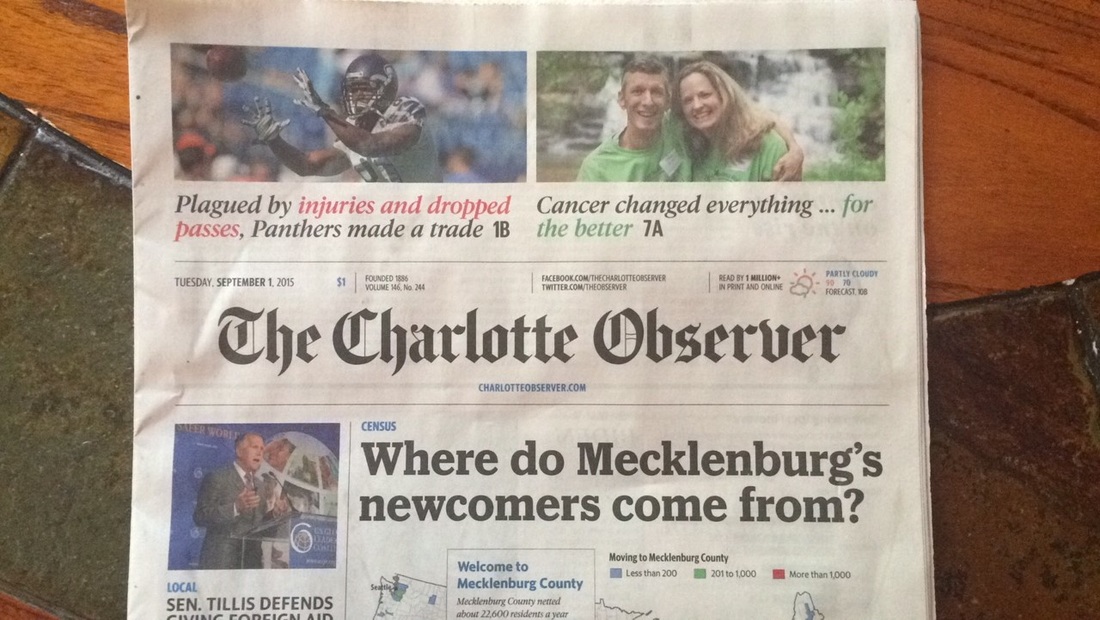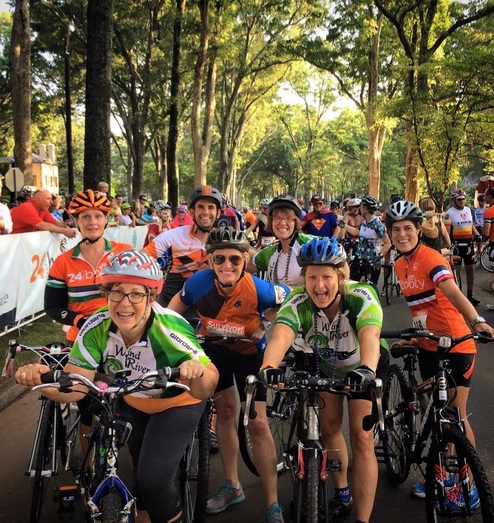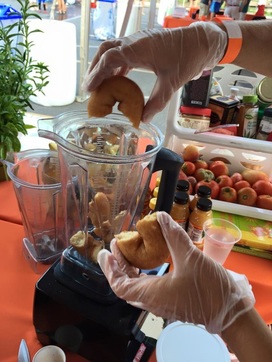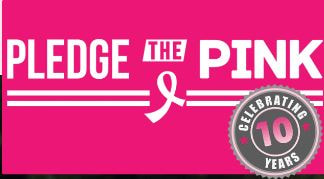
BY PAGE LEGGETT
Correspondent
In 2003, Shannon Carney was a lawyer at Wachovia and Dave Pschirer was a Duke Energy engineer in the environmental area. They had high-pressure jobs, but they liked it that way.
That year, the couple, together since 2000, faced Carney’s Stage II breast cancer. She was 37 at the time. “In an instant, our lives changed,” said Pschirer, now 52. “We spent the next year going to appointments, enduring hospital stays and dealing with side effects from chemotherapy, surgery and radiation treatments.”
After a year of hospital stays, doctor visits and treatment, Carney, who is now 50, was declared “NED” (no evidence of disease) in 2004. “We thought we could go back to the way things had been,” Pschirer said. “We were wrong. After our experience with cancer, we were not the same people we had been.”
One Friday in 2005, Carney came home from work in tears. “Dave looked at me and said simply, ‘Don’t go back on Monday,” she recalled. That afternoon, they sat on their floor with a poster board and began to write down what they wanted more of. And less of.
Carney did return to work that Monday – but with different priorities.
Eleven months later, they bought a home 90 minutes from Charlotte in the foothills of the Blue Ridge Mountains in Tryon, leaving their high-paying corporate jobs to live a life of compassion. Making money became less important for the 40-somethings; helping others became the goal. “Our favorite word then and now is: simplify,” Pschirer said.
The home isn’t just their home, though. In 2007, they turned it into Wind River Cancer Wellness Retreat and began offering support – at no charge – to those living with cancer.
Individual and small business donations, including from some previous participants, fund the nonprofit. Pschirer said, “Participants are able to focus on healing rather than financial concerns while they’re here.” (Wind River also gets funding from 24 Hours of Booty and the Colon Cancer Coalition.)
A majority of Wind River retreatants are dealing with advanced cancers – or a recurrence – and are in active treatments. Pschirer said, “We have a couple of spaces at each retreat available for someone recently done with treatments and asking the question, ‘Now what?’”
Participants must be able to handle their own daily medical needs and be able to maneuver multiple flights of stairs. “There is a beautiful chemistry and support network that often happens when you have people come together with different stages of cancer,” he said.
The primary program is a four-day retreat focused on camaraderie, time in nature, healthy eating, Tai Chi, journaling and more, Pschirer said.
Cancer can be a transformative experience, if you choose for it to be, Pschirer said.
“The gift of cancer, for us, was that it forced us to remove the unnecessary things from our lives to make space for what was really important,” Pschirer said. “...we manage our own time; meet amazing, beautiful people and we get to make a difference.”
THE POWER OF CHOICE
Dave Pschirer and his life partner, Shannon Carney, left high-powered careers to start a retreat center for cancer patients. Here’s Pschirer’s advice on making a career change.
Be open to possibilities. “Be willing to take a risk. You never know where it may lead.”
Don’t rush it. Thinking of making a change? “Like most things, it takes time. You didn’t get to where you are at overnight, so you shouldn’t expect to change everything overnight either.”
Save. “You will never regret having a ‘rainy day fund,’ and it might be just what you need when the time is right.”
Compromise. “Getting used to the idea that life is full of choices, and you will probably have to give up something to get something you want more, was pivotal for us.”
Don’t play the victim. “You have choices. They may not always be comfortable or easy choices, but you do have choices. Shannon and I … made a choice to give up financial stability and health insurance guarantees (it was before the Affordable Care Act) for a certain level of personal freedom. It was scary and uncertain, but empowering at the same time.”
Read more here: http://www.charlotteobserver.com/living/health-family/article32853180.html#storylink=cpy


 RSS Feed
RSS Feed




